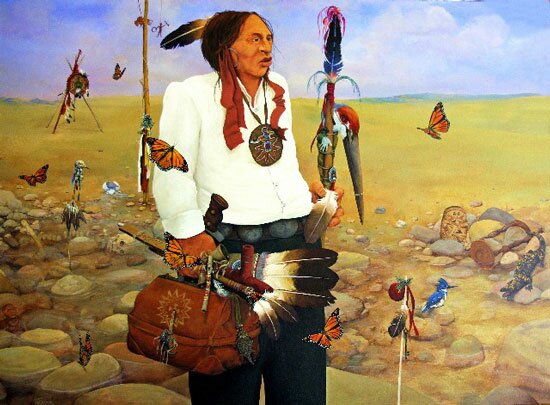
The Awakening and The Path, by Robert Taylor
by Kathryn Mann
In his incredible work of art, "The Awakening and The Path," Robert Taylor, a Native American painter, captures on canvas the journey of life. The scene depicts the full span of a life rather than a particular moment or point in time (note the overturned hourglass on the right, indicating the suspension of time). The protagonist, who is on the path of life, gazes forward stoically, not knowing what lies ahead of him. He carries with him various tools that may help him overcome obstacles (the doctor's bag and other instruments).
Butterflies throughout the scene dazzle us with their marvelous display of fragile beauty. The monarch butterfly is a symbol of transformation. It goes through three distinct stages in its life, caterpillar, pupae, and ultimately the beautiful winged creature depicted in this painting. The miraculous physical changes undergone in the life of a monarch remind us that we can make radical changes within ourselves, such as adopting a new habit that helps us become a better or healthier person.
The Gila monster glaring menacingly from the right is the danger we may encounter along the way. The kingfisher that stands guard against him represents our teachers, guides, and supportive spirits who protect us from harm. None of us knows when the Gila monster may try to hurt us. Some challenges come early in life, some late, and each with varying degrees of support from others. However, if we retain the strength and integrity of the man depicted in this painting, we can continue to grow and emerge from each transformative experience a little wiser and better prepared for the next stage of our journey.
In these times of economic turmoil and personal uncertainty, it is particularly important to take a bird's eye view our life as a whole, evaluating what is important and focusing on that which is within our control. If we approach this journey with a sense of wonder and adventure, and embrace the challenges we face with determination, we will continue to learn and grow, moving, step by step, a little closer to our personal potential, much like a monarch butterfly that reaches its full potential of perfection and beauty.
by Charly Mann
Can we really define good and evil? These are terms that originate in our morality, philosophies, and religions, yet few people have defined precisely what either is. During the last few years, I have observed five of my friends (three religious and two atheists) use the term "evil" to describe someone they knew.
I believe evil is an unnecessary act that causes harm to another for one's own enjoyment or benefit. The defining characteristic of an act of evil is a lack of empathy. The root cause of evil is selfishness, and is something we should all guard against. In addition, to do evil, one has to rationally ignore their own conscience.
For example, I recently sold a DVD on EBay that is not compatible with most US DVD players. I noted this in my ad, but felt it might be overlooked, and purchased by someone who could not use it. When it sold to someone in Seattle I spent $9.00 shipping it to them, and paid EBay a $5.00 sales commission. I was aware that this person might contact me and want their money back because it was not what they wanted. A small part of me was prepared to say, "look I said clearly in the AD that this was not compatible with most American DVD players, and you bought it, and I'm already out $14.00 shipping and fees, so it is yours." But my conscience was clear that this was another human being, and I could not take advantage of their mistake, so I would definitely give them a refund. To do otherwise would be evil, because I would not be acting empathetically, but selfishly.
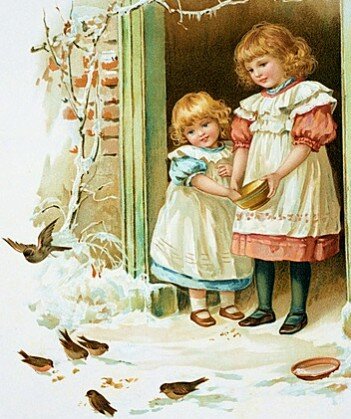
Empathy at Work
When I was 20, I encountered another example of evil. I was working in a record store in North Carolina. One evening, shortly before closing, a very beautiful, but extremely sad and distraught young woman came into the store. She tearfully explained that she had recently left an abusive relationship, had little money, and no friends or family close by. After closing, one my co-workers invited her to stay at his house until she could straighten herself out. That evening, he took the girl, me, and another male employee over to his home. When we got there he and the other male employee had a couple of beers. Then he offered to show the girl, who sat nervously and distraught beside me, where she could sleep. He took her into his bedroom, and emerged about ten minutes later saying he had had sex with her, and invited the other male to do the same, which he eagerly did. I was bewildered and saddened at what was going on, and when the other male came out, he told me it was my turn. I was appalled and declined. I left soon after this. I cannot imagine the additional trauma that having sex with these two men had on this poor soul. I suspect that she acquiesced because she was frightened and depressed. I never heard about the girl again, but as a coda to the story, several days later I had to take my two "friends" to the hospital to be treated for venereal disease.
Empathy is the cornerstone of civilized society. It is reiterated in the golden rules which say, "do for others what you would wish them to do to you," and "love thy neighbor as thyself." To be a part of a family or community requires one to care about the feelings and dignity of others. While I may like to play music louder than my daughter enjoys, I must recognize that her feelings are as important as mine, and I can either listen to music at a lower volume or use headphones. Anything that harms or hurts another soul, done consciously and unnecessarily, is selfish and evil.
Evil actions eventually do more harm to the perpetrator than to the victim. The laws of the Universe, or karma, always win out. I had a dream some years ago about how God might punish someone for evil. In my dream, God said all evil souls would have to spend 10,000 years in a conscious but motionless state where they would experience a dynamic and exciting world full of wonderful people and things but could not speak or physically interact with any part of it. I often think of this dream when I contemplate any selfish or evil action.

The unique personality which is the real you, you will not gain unless you search for the spiritual quality in others. It is only from the God inside others, that the God hidden in you will consent to appear.
by Charly Mann
We have become a culture that is far more interested in style than substance. This is manifested in our infatuation with celebrity. We no longer have knowledge of or interest in people who have made a significant contribution to society, have great ideas, or have exceptionally strong character. In 2008, the people and topics Americans were most interested in were:
#1. Britney Spears - a mediocre singer with an IQ of 100, whose fame grows as she humiliates herself with drunken public nudity and weeks of forced psychiatric evaluation. She is also judged so mentally impaired that her father has taken over her finances.
#2. The World Wrestling Federation - a fake sport that has more violence per second than anything else on television.
#3. Naruto - a cartoon character whose creator, Masashi Kishimoto, says is "simple and stupid."
#4. Miley Cyrus - the 15 years old daughter of one the least talented country stars of all time, Billy Ray Cyrus. She is famous for taking on the persona of a non-existent person, Hannah Montana. Her fame has been greatly enhanced by scandalous photos she did for Vanity Fair magazine. Her talent and intellect seem average at best.
#5. Jessica Alba - one of the least talented actresses in history, who at 17 has already managed to score three worst actress nominations in the annual Razzle Awards for Good Luck Chuck, Awake, & Fantastic Four.
#6. Lindsay Lohan - who beats out Jessica Alba as the world’s worst actress in Hollywood. She is also well known for her many stays in rehab and a revolving door of relationships.
#7. Angelina Jolie - an actress who cannot act her way out of a box, but is certainly beautiful even though her body is covered with at least a dozen separate tattoos. Her gorgeous looks are helped by a major nose job and lip augmentation. Her favorite fun activity is sexual bondage and S&M (sadism and masochism). She has had many relationships and several marriages. For her marriage to Jonny Lee Miller she wore a white shirt with his name written on it in her own blood.
#8. American Idol - a television show which marks the low point in American popular culture. Never has homogeneity and mediocrity been so celebrated. In a musical culture that has given the world its most talented and instantly recognizable singers, including Elvis Presley, Frank Sinatra, Patsy Cline, Ella Fitzgerald, Bob Dylan, and Johnny Cash, we now have a weekly array of the most uninspired and bland singers imaginable. Talent is now judged on sexiness, flash, and predictability. Whereas we once prided ourselves on recognizing and rewarding unique talent, American Idol is a show about people desperate for fame who possess no originality.
We now have little interest in people who are wise, intelligent and ethical. People mainly care about celebrities, whose primary appeal is their attractiveness and lack of virtue. Music and movie stars are often the least creative and intelligent people in the entertainment business. Their success is usually based on the talent of brilliant songwriters, directors, record producers, and screenwriters, but in our shallowness we attribute the genius we see in a movie or hear in a song to the person who is usually least responsible for that achievement.
The essence of a person is their substance. One's style is conveyed by image, which is primarily a combination of appearance, comfort level, and conversational ability. We are now attracted to style over substance. For example, while most Americans say they prefer to vote for the candidate who is most intelligent, the primary way we judge how smart a politician is is how they look and speak on television. Having a polished image and speaking well are admirable traits, but these are not a good indication of intellectual capacity. Almost every good cheat, liar, and swindler has these attributes, as do most celebrities. In the 2004 Presidential election between John Kerry and George Bush, most people believed Kerry was far more intelligent than Bush because he looked and spoke like a movie star. George Bush on the other hand was always ill at ease in front of a television camera, and sometimes even mispronounced words. For the record, Kerry and Bush went to Yale University at the same time, and Bush's grades were better than Kerry's. Kerry also scored lower than Bush on a military intelligence test.
In theory, a person should become famous based on their achievements. In practice, being a celebrity is widely seen as a great achievement in itself. Americans are absurdly interested in the lives of inconsequential celebrities. Rarely will one see a news magazine in a grocery checkout line, but there are always People, Us, In Style, Star and National Enquirer magazines. Just fifty years ago, 86% of the people Americans admired most were great writers, inventors, scientists and world leaders. Today, the only non-celebrity on America's top ten list of most admired people is Barack Obama.
Dust if you must, but wouldn't it be better,
To paint a picture or write a letter,
Bake a cake or plant a seed,
Ponder the difference between want and need?
Dust if you must, but there's not much time,
With rivers to swim and mountains to climb,
Music to hear and books to read,
Friends to cherish and life to lead.
Dust if you must, but the world's out there
With the sun in your eyes, the wind in your hair,
A flutter of snow, a shower of rain.
This day will not come 'round again.
Dust if you must, but bear in mind,
Old age will come and it's not always kind.
And when you go and go you must,
You, yourself, will make more dust.

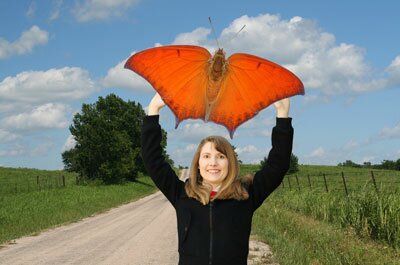
Came floating gently through the sky.
He soared up through the atmosphere
Then drifted close enough to hear.
I said, "I'd love to fly with you
And sail around the way you do.
It looks like it would be such fun
To fly up toward the summer sun.
But I have not your graceful charm.
I haven't wings, just these two arms.
I've been designed to walk around.
My human feet must touch the ground."
Then magically he spoke to me
and told me what his wish would be.
He said, "What I'd love most to do
Is walk upon God's Earth with you,
To squish its mud between my toes
Or touch my finger to my nose.
I'd love just once to walk around
With human feet to touch the ground,
But I have not two legs that swing,
I haven't arms, just these two wings."
And so we went our separate ways
In wonder and surprise.
For we'd both seen God's precious gifts
Through someone else's eyes.
by Charly Mann
More than nine billion animals are raised and slaughtered for food every year in the United States. Most of these animals are kept in factory farms where livestock is confined to a very small area during its entire lifetime. These animals are fed large amounts of food to fatten them up as quickly as possible.
Factory farming is not concerned with how the animals are treated. Its function is to produce meat for human consumption as quickly and cheaply as possible. Unfortunately, Americans’ increased consumption of meat is a contributing factor to our dramatic increase in obesity and heart disease.
Billions of pounds of waste from slaughtered animals are fed to other animals on these farms, including cattle blood fed to calves. Waste generated by slaughtered cows is fed to pigs and chickens, and waste from dead chickens and pigs is fed to cattle.
Factory farming is also causing dangerous bacteria to become resistant to antibiotics. Animals in factory farms live in very confined spaces, in or close to their own manure and urine. This unsanitary condition makes them highly prone to illness, so antibiotics are placed in their feed to boost their immune systems. The routine administration of antibiotics to factory farmed animals increases bacterial resistance to the antibiotics that humans use to fight off illnesses.

Whether you eat meat or not, everyone should want animals to live in sanitary and somewhat comfortable conditions. Placing animals in spaces so small that they cannot turn around, often never see light, and live in their own waste is cruel. Most male calves are castrated at three months and sent to feedlots, while female calves are taken away from their mothers just days after they are born and fed on artificial milk as they prepare to become diary cows. Dairy cows usually also have a very painful procedure called docking in which their tails are cut off to make it easier for workers to get close to their udders for milking. Dairy cows are eventually slaughtered when their milk production declines at five years of age, while male cows are quickly fattened and ready for slaughter in only one or two years. The natural lifespan of a cow is twenty-five years. Pigs are very social, affectionate and intelligent creatures that are confined in narrow cages where they cannot even turn around. A mother pig is usually unable to move during most of her life, lying in her feces while her piglets barely have room to move. As a pig grows, it is placed in a concrete pen without any form of bedding and without soil to root in, which is natural for a pig. Pigs become aggressive and restless in such confinement and often attack one another. Many pigs develop pneumonia from the high level of ammonia produced by the waste they live in. Chickens in factory farms spend their entire life in a space of less than eight by ten inches.
Chickens naturally forage for food by pecking with their beaks. Since they are unable to peck in their small cages, their beaks are seared off. Chickens raised for meat are genetically altered to have thighs and breasts so large that they have difficulty standing. Chicken hens raised to produce eggs are kept in cramped cages with five to eight other hens in a space of just 14 square inches. Male chicks born in egg factories are suffocated in trash bags. When hens stop producing eggs they are slaughtered for meat.
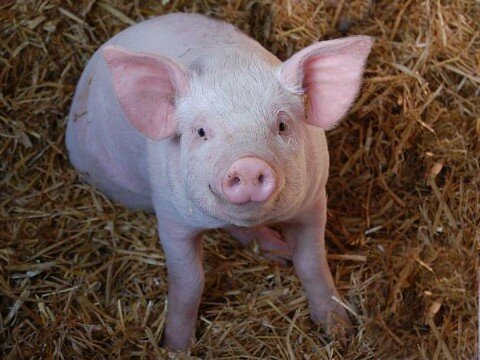
Being human means being humane. This requires us to be compassionate to animals. There will be a much brighter future for all living beings if man can learn to respect and be kind to animals. Empathy for animals helps build moral character, reduces our tendency for violence, and creates a world where people are more caring toward each other.
by Charly Mann
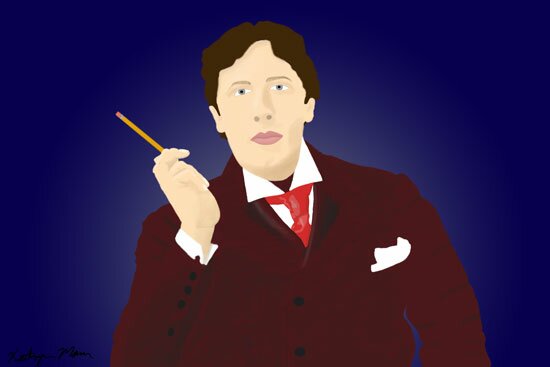
informZoo: Thank you, Mr. Wilde, for affording us the first interview with you since you have come out of the closet about your secret life in the United States for the last century.
Oscar Wilde: Illusion is the first of all pleasures. Nowadays to be intelligible is to be found out. You found me, and now you threaten to reveal where I am living unless I consent to talk to you, so what we have to do, what at any rate it is our duty to do, is to revive the old art of lying.
informZoo: So let me begin by asking, just how it is you are not in Heaven or Hell, or just decomposing in your grave in Paris?
Oscar Wilde: God told me that no other human had such an undignified end to life as me, and that I should return to the world to enjoy my resurgence in popularity.
informZoo: That’s incredible and a little hard to believe.
Oscar Wilde: Ah, you see the true mysteries of this world are the visible, like me sitting here talking to you at 154 years old, and not the invisible.
informZoo: Well, I admit you are sitting here, and you look less than one third your actual age, but I just never thought God let people come back from the dead and live anonymously with us for so long.
Oscar Wilde: It was during my years in prison, and my last years living destitute and miserable in Paris, that I prayed for this, and God told me soon after I died that the way he punishes most people, including myself, is to answer their prayers.
informZoo: Okay, this makes a little more sense, but surely you must be pleased to see how much you are admired today, and feel vindicated about what was done to you.
Oscar Wilde: One can survive everything, nowadays, except death, and live down everything except a good reputation. In most respects I enjoyed my life in the late 19th century much more than I do now. Besides, God has condemned me to live in the United States, the only country that went from barbarism to decadence without civilization in between.
informZoo: Oscar, you are certainly one of the most brilliant men who has ever lived. Yet your downfall seemed to be a libel suit you brought against the Marquis of Queensbury for calling you a sodomite. It seems that most people disliked Queensbury, and all your friends advised you just to ignore this irrational man.
Oscar Wilde: Yes, I think my overindulgence in alcohol caused me to go against my own advice of being careful in the choice of my enemies. It was my recklessness in going against him that ruined me, but I have forgiven him, and nothing annoys an enemy more than this.
I could say more about the suffering and indignity of not being able to acknowledge my homosexuality in this era, but a man who moralizes is usually a hypocrite.
informZoo: Both of your parents were somewhat eccentric. Your father was a respected eye and ear surgeon who had several illegitimate children from extramarital affairs. Your mother was rather flamboyant and unconventional for her time, a champion for women’s rights, an Irish nationalist, and a poet. How much impact did they have on your life?
Oscar Wilde: I began by loving my parents; after a time I judged them for their faults; I still have not forgiven them. I firmly believe fathers should be neither seen nor heard. That is the only proper basis for family life.
On the whole one’s family is simply a tedious pack of people, who haven’t got the remotest knowledge of how to live, nor the smallest instinct about when to die
informZoo: Your only novel, The Picture of Dorian Gray, is hugely popular today, but was considered immoral by the critics and was poorly received when it was published in 1890. One review at the time implied the book was homoerotic saying, “one element of the novel will taint every young mind that comes in contact with it.” In retrospect how do you assess this criticism?
Oscar Wilde: There is no such thing as a moral or an immoral book. Books are well written, or badly written. The press hated me, and morality is simply the attitude we adopt towards people whom we personally dislike.
informZoo: Well as an aside, I love the book and have read it at least three times.
Oscar Wilde: If one cannot enjoy reading a book over and over again, there is no use in reading it at all.
informZoo: The theme of Dorian Gray is that goodness and beauty are not necessarily linked, seem to me, more poigant today in our youth and sex obsessed celebrity culture, than when you wrote it.
Oscar Wilde: I believe now that youth and beauty are overrated, and having a meaningful life is preferable to one obsessed by physical beauty. Most people waste their lives vainly believing that happiness can be achieved by looking young and attracting or possessing artificial beauty. It took me most of my life to fully learn this lesson.
informZoo: You were ruined because your writing and personal behavior was considered effeminate. Today the world is a much more open and safer place to be a homosexual, yet recently the majority of the voters in California, our most progressive state, enacted legislation preventing same sex couples from marrying.
Oscar Wilde: The security of society lies in custom and unconscious instinct, and the basis of the stability of society, as a healthy organism, is the complete absence of any intelligence amongst its members.
informZoo: Your legacy and reputation was made as a playwright. In three short years, between 1893 and 1895, you wrote Lady Windermere’s Fan followed by A Woman of No Importance, An Ideal Husband and finally The Importance of Being Earnest. All were highly popular then and continue to be so today.
Oscar Wilde: I regard the theatre as the greatest of all art forms, the most immediate way in which a human being can share with another the sense of what it is to be a human being. These plays highlight my individualism as an artist.
informZoo: You did not have literary success until you were in your late thirties, but your socializing, self promotion, and the characterizations of you in the London press and stage, combined to make you famous for being you. In fact you may have been the world’s first real celebrity.
Oscar Wilde: Caricature and celebrity is the tribute that mediocrity pays to my genius.
informZoo: But didn’t you create your celebrity? You said the following when you graduated from college. “I’ll be a poet, a writer, a dramatist. Somehow or other I’ll be famous, and if not famous, I’ll be notorious.”
Oscar Wilde: Most people are other people. Their thoughts are someone else’s opinions, their lives a mimicry, their passions a quotation. I knew I had genius and that I wanted to live well. My family raised me to live a life of leisure, however my father died in debt. Nevertheless I was determined to use my talent, which is my artistic genius, to live the life I felt destined to live.
informZoo: You certainly got yourself noticed early on. At a time when upper class men wore dark suits and inconspicuous ties, you covered your hands with flashy rings, wore a huge bow tie, and carried a cane for effect. You also usually had on white pants with matching gloves, and patent leather shoes. You even had a brightly colored handkerchief in the breast pocket of your jacket. You certainly must have looked outlandish by the standards of the day.
Oscar Wilde: Yes I got many insults for my appearance, but it helped make me the center of attention, and this is what I wanted. As you can see I’m not a naturally handsome person. I’m 6 foot three inches, a bit overweight, and have an overly oval shaped face. Unfortunately also, my teeth are black from the mercury I took for the syphilis I got when I was I college. So my clothing also made me less physically repulsive.
informZoo: After you left college at Oxford you moved to London and seemed to focus on getting invited to A-List parties in town.
Oscar Wilde: It was my charm and wit that got me noticed and made me stand out even in London’s most fashionable circles. Two of the most famous and glamorous actresses of the day, Sara Bernhardt and Lillie Langtry were among my best friends. I even got to know Lillie’s sometime boyfriend, the Prince of Wales.
informZoo: A young William Butler Yeats said he was astonished the first time he met you at one of these parties. He said, “never before have I heard a man talking with perfect sentences, as if he had written them all overnight with labour and yet all spontaneous.”
Oscar Wilde: Yes, I remember the first time I met him as a handsome teenager. He describes me well. I knew that to get into the best society without a title or money, one had either to feed people, amuse people, or shock people. I did the latter two rather well. I learned to talk to every woman as if I loved her, and to every man as if he bored me.
informZoo: Your plays are timeless social criticisms of the hypocrisy in society. Throughout them we see charming and polite people following social convention, yet actually being cruel and manipulative.
Oscar Wilde: I love using satire to expose the vulgar in society. People are always pretending to be something or believe something they do not. Hypocrisy is a necessary component of the social world. People must pretend and conform to the social norm in order to maintain their position. Hypocrisy is the glue that holds relationships and society together.
informZoo: I agree, lies seem to be a necessary tool in a civil society to avoid conflict.
Oscar Wilde: Yes, I want people to acknowledge that lies are essential for civil conversation.
informZoo: There are many who say that your deathbed conversion to Catholicism was a lie.
Oscar Wilde: My father was an agnostic, but my mother had secretly baptized me as a Catholic when I was young. I had been moving close to converting to Catholicism on my own for many years before my death. While I was in prison I spent much of my time reading St Augustine, the Bible, Dante, and a biography of St Francis of Assisi. The first thing I did when I left prison was to write to the Jesuits begging them to take me in for six-months. Sadly they did not accept me.
informZoo: Nevertheless, many of your admirers today have a hard time accepting the outrageous and irreverent Oscar Wilde as a Christian. Stephen Fry in his recent movie biography of you simply ignores this part of your life.
Oscar Wilde: Fry is a magnificent actor and director, but like any artist what he has created is more a film about himself than me. Life is complex and people grow and learn. His portrayal of me is one-dimensional because I stay the same person throughout my life. Unfortunately, consistency is the last refuge of the unimaginative, and that was never me.
informZoo: So you sincerely wanted to be a Catholic at the end?
Oscar Wilde: Yes, my friend, the year of my death I even attended Easter Sunday mass with the Pope in Rome. I had been attending mass on a regular basis for years. As my health declined I often asked my friend Robert Ross to bring a priest to me so I could be baptized again. He was always reluctant, but promised to bring one when I was dying. When the priest did come, I could not speak, but signaled clearly to him that I wanted to be baptized, and for the next two days until my death, said prayers with him.
informZoo: So now after you have died and met God what is your opinion of him?
Oscar Wilde: l love God, but I think in creating man he somewhat overestimated his ability.
informZoo: One final question, what is the purpose of life?
Oscar Wilde: The aim of life is self-development. To realize one’s nature perfectly—that is what each of us is here for.
© Charly Mann 2008
Painting by Kathryn Mann
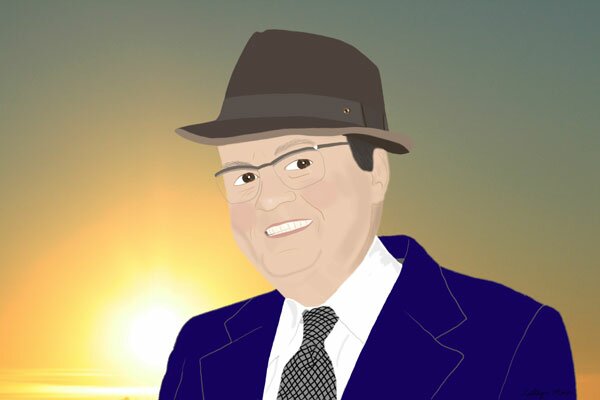
by Kathryn Mann
This is my grandfather, William Robert Mann, a person of great integrity, kindness, intelligence, and wisdom. He no longer lives on this earth but in the time that I knew him he had a great impact on me. He was a fearless person for whom no challenge was too daunting to undertake, if he decided to set his mind to it. His discipline, optimism, and faith guide me more profoundly now than if he were still present physically. He is a true guardian angel.
My grandfather was a deeply religious man, and Saint Thomas Aquinas was one of his spiritual mentors.
We are like children, who stand in need of masters to enlighten us and direct us: and God has provided for this, by appointing his angels to be our teachers and guides.
Saint Thomas Aquinas
by Charly Mann
A little more than a hundred years ago there was a family that lived in Bartlesville, Oklahoma who everyone in the town believed had a perfect life. One day a neighbor said to the father of this family, "Life is really not fair for me. You always have good luck, and I rarely do." The father thought for a moment and said, "It depends what you mean my friend." The neighbor then said, " Yesterday your son went out for a ride in the hills, and an entire herd of wild horses followed him back to your pasture. This you must admit is good luck." The husband replied, "It depends."
A day later the man's son was thrown from one of the wild horses as he tried to tame it and broke his leg. The neighbor hearing this news returned and said to the husband, "I was wrong about your family’s luck, you have bad luck like all the rest of us.” The husband responded by saying. “It depends.”
The next day the son along with most of the other boys in town received letters from the government telling them that they must join the army and go off and fight in World War I. Because the son’s leg was broken he could not join. The neighbor returned to see the father and said, “I was right the first time, you and your family are blessed with good fortune.” The husband replied, “It just depends. “
The next day the family’s house burned down, and the neighbor came over and said, “ I am so sorry, your family really seems to be cursed.” The husband looked down at a small pool of black oil coming up from the ground beneath where the house had once stood, and said, “It depends.”
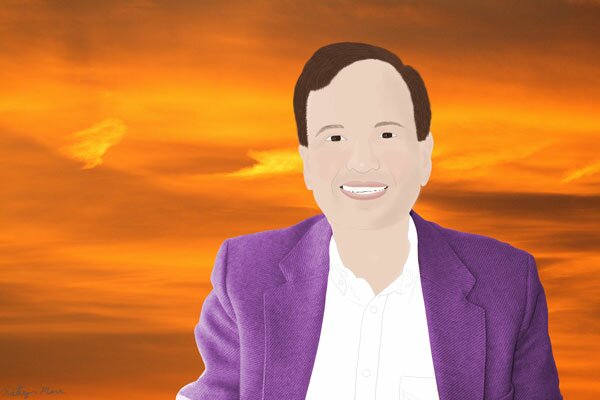
I live in the Cherokee Nation in Oklahoma. I have tremendous respect and love for the culture of the American Indian, especially the Cherokee. The following story encapsulates the wisdom I see in this great culture.
An old Cherokee chief was teaching his grandchildren about life. He said to them, "A battle is raging inside me ... it is a terrible fight between two wolves. One wolf represents fear, anger, envy, sorrow, regret, greed, arrogance, self-pity, guilt, resentment, inferiority, lies, false pride, superiority and ego. The other stands for joy, peace, love, hope, sharing, serenity, humility, kindness, benevolence, friendship, empathy, generosity, truth, compassion and faith."
The old man fixed the children with a firm stare. "This same fight is going on inside you, and inside every other person, too."
They thought about it for a minute and then one child asked his grandfather, "Which wolf will win?"
The old Cherokee replied: "The one you feed."
by Charly Mann
Not so long ago and fairly nearby lived a white deer in a rather mundane forest. This particular creature possessed the answer to the most important question in the universe, yet no one had ever been able to coax the information from this ghostly-looking animal.
One day, as I was walking through these woods, I thought I spotted a large white sheep grazing in a pasture adjacent to the forest. As I got closer, I saw it was instead this stubborn deer. When I got within five feet I asked him to provide me with the answer to the question humanity had been pursuing for many millenniums. That is, “what is the meaning of life?” Silently the deer looked up at me from his grazing and slowly moved about ten feet further away. I then spoke even more forcefully and implored the stag to be generous and share his secret. At the precise instant my question was complete he vanished.
I then returned to the forest in bewilderment trying to imagine where the deer had gone. No more than ten paces into the trail, the deer reappeared in front of me, charging at me with his antlers pointed at my body. I called out, “Please God …” and suddenly he stopped and said, “Good fortune waits you beyond the bend in the trail.” I regained my composure and repeated the question I had asked him twice before. “Three times,” he said, “is the charm,” and he came up within six inches of me. He then looked directly into my eyes and spoke these words:
“A momentous time is near for the world you live in, and my appearance in your forest heralds a profound change in how man will live from now on. Here is the answer that all men seek. Life is eternal and that alone gives it purpose. Existence and consciousness should be spent marveling at God’s creation and serving your purpose of getting to know God better by trusting him.”
The deer then returned to graze in the pasture, and I turned on my camera, and when I got to the bend in the trail captured this photograph.

by Charly Mann
The scientific and academic world often derides religion because it is based on myths that are obviously untrue. Humans have been creating myths about God and where we came from for over 10,000 years. Most of our current religions are outgrowths of very old stories handed down from ancient generations. The essence of most religious scripture is that God created us and the universe we live in, and that we will live in another form after our bodies die. While most of the stories in religious scripture are made up and are literally and factually false, they provide lessons that are morally and metaphorically true. Humans have a deep curiosity for trying to comprehend the wonders of God, the universe and how to lead a good life. Our myths are seeded in human imagination, which intuitively knows something magnificent was responsible for our existence.
Science tries to explain where we came from and how the universe was created with theories. Theories are educated guesses based on what scientists observe. Most scientific theories are supported by multiple scientific hypotheses. One of the most important laws of science is Sir Isaac Newton’s theory of gravity from 1666. It was based on observed facts that were tested and verified by scientists for more than two hundred years. Scientists were so certain about Newton’s theory that it was proclaimed a law of science. Nevertheless, by the late nineteenth century scientists found that this law was not totally accurate. Albert Einstein’s theory of general relativity in 1916 significantly altered the laws of gravity that had been accepted as the truth for so long by science.
The problem with scientific truth and theory is that it only is true based on what scientists are able to observe. Think of an ant colony that resides in a kitchen wall of a house. For 200 generations the ants have come into the kitchen through a small opening under the kitchen sink to eat and carry back crumbs of food from the floor and counter to their colony. From time to time they detect a human in the kitchen, but have no real comprehension of what a human is. They can understand that a human is a living thing and 200 times bigger than they are. They may also correctly surmise that the human is somehow responsible for their food. A human would seem eternal to an ant, since their lifespan is just 90 days. By the time a human was 50 years old, 200 generations of ants would have observed the human. In human terms that is 5,000 years. So the ants, like our scientists, would be able to make many observations of humans, and would surely keep refining their theory of what a human was, but due to their short life span and brain size would unlikely ever have an accurate understanding of us. Likewise, our own brains limit what scientists can understand and observe in the place and time we humans occupy in God’s universe.
Myth, like science, is not true knowledge, but only human theory. God stands above all the myths and theories we have made up about him and creation. We can know God without these stories. We can see him in everything around us that he created. We can see God in the laws of biology, physics, and chemistry that he controls. We can detect God in the hearts and minds of humankind, which strives for peace, harmony, and the desire to treat everyone fairly.
What is truth?
How do we know anything?
Is truth absolute or relative?
If absolute, how would you define it?
If relative, then would you agree that your truth is false to others?

Something that really is Black and White - a Kingfisher
by Charly Mann
As humans we think that our minds have the ability to comprehend the origins of life and the miracle of nature. Even the most renowned scientists have no idea how to create the simplest form of life, and the world’s leading neuroscientists agree that the human brain is so complex that even the idea of implanting something like a new language skill is highly unlikely. The crux of scientific thought on the origins of our universe is something they call the big bang. However, they have no explanation about how something could originate from nothing. That is incomprehensible even to them. I have no problem with the divine being largely incomprehensible. The following quotes by two of the greatest minds in world history summarize the essence of my belief in God.
That deep emotional conviction of the presence of a superior reasoning power, which is revealed in the incomprehensible universe, forms my idea of God.
Albert Einstein
To be immortal is commonplace; except for man, all creatures are immortal, for they are ignorant of death; what is divine, terrible, incomprehensible, is to know that one is immortal.
Jorge Luis Borges

by Charly Mann
Do you believe that we live in a universe created by God, or that our origins are from a random big bang, and that there is no divine purpose to life?
For those of you in the purely scientific explanation camp, the laws, principles, and theories of quantum physics might surprise you. It is the most advanced field of modern science. It specializes in the atomic world, which is totally different than the world we live in. It studies invisible units of energy called quanta that behave quite magically. Quantas are unique particles, like a rock or chair, yet it is never possible to know the location of a quanta because they move totally randomly. Everything in the quantum world is based on chance and probability and nothing is certain.
There are many bizarre ideas that are logically derived by scientists from the principles of quantum physics. One is called the multiuniverse theory, which postulates that there are an infinite number of universes that all exist at the same time in different dimensions. In these universes, so the theory goes, there are infinite copies of you – and the answer to who you really are, is that you are all these copies of yourself combined. What is more, you are not an identical copy, but one of multiple variations that have occured in each universe. For example, say you had a choice just now of having a glass of water or a glass of milk. You decide to have the water in this universe, but according to the parallel universe extension of this theory, another you had the milk and thus starts an entirely new life for another you in a different universe. You then keep expanding in this way in an unlimited fashion based on all the possibilities you have at any moment. This means that while one of you may have made some bad investment decisions and lost a lot of money recently, you will be happy to know another you has done very well. Of course, another you probably lost even more money, and another you did not even make any investments. All of these universes are related to our own, but with so many trillions of outcomes each would be far different from the other.
Now while all of this may make you think that science is as whacky as most religions, it should be noted that the Hindu scriptures thousands of years ago said there were indeed an infinite number of universes each with a lifespan of 8.4 billion years, which is close to the time many scientists believe ours will last.
For me, I see in this world the hand of a loving God whose power and full purpose is incomprehensible to my limited mind.
By Charly Mann
If someone asked you who you are, could you really answer them? Most of us would answer that question with our name, but is that really who we are? Our name is something attached to us by our parents or marriage. If we went further, we might try defining ourselves by want we do for a living, where we live, some information about our family, and perhaps our age. However this really does little to describe the essence of our individuality.
To get a better answer of who you are, one could ask a friend or family member. These people often have a better picture of you than you do, since they will likely describe attributes of your personality. When we think of other people it is their personality and appearance that first comes to mind. In fact, we are so much our personalities to other people that those who know us well can accurately predict how we will react in almost any situation. For example I have known my wife for forty years and often have conversations with her when she is not even around because I know what her response is going to be to almost anything I might say.
But are we really our personality? Although we may not want to admit it, much of our personality comes from our parents, friends, and other people we have known in our lives. As we make new friends, our personality usually changes to adapt to the people we enjoy being around. However we really are not our personality. It is only a mask of habits and mannerisms we use to live our lives on autopilot. Unfortunately, personality prevents us from being ourselves, because it enables us to react unconsciously and predictably.
So how can you see that you are not really your personality? Think about how often you do things that fit your personality yet you felt were not really you. For example, do you sometimes act carelessly, lose your temper, or bend the truth, yet feel internally that this is not your true nature? Many of us go through our lives doing things we do not enjoy because our personality is comfortable with it, yet we feel insecure, unfulfilled, and unhappy. This is because you are not being you, but instead are a prisoner of your personality. As a , we suffer from many personality disorders, including depression and Attention Deficit Disorder, in ever growing numbers.
The real you is within, and is your essence. Some call this your soul, higher self, or spiritual core. It is this essence that makes us unique, and can only be manifested if we focus on connecting to it. This real you remains largely unchanged as you adopt different personalities throughout your life. It is also the only part of you that you really need to nurture and develop. The inner you is your connection to your innate abilities and your intuitive side. It is also the pathway to a spiritual dimension that you will discover through a guiding wisdom in your soul.
Self-knowledge is the result of connecting with your essence. Contemplation and meditation are two of the best paths to begin the transformation from the mask of personality to inner consciousness. As you progress, you will begin to have spiritual experiences. At this point your faith and relationship with God will become the most important part of self-knowledge.
Your essence is the true you and responds to the realities of life quite differently from your personality. Your essence is creative, compassionate, curious, spiritual, and inventive. It responds imaginatively to problems with an awareness and perspective that your personality does not possess. Your personality does not want you to change, while your essence wants you to take initiative for real personal and spiritual growth.
As you gain serenity and self-knowledge by connecting to your essence, you will learn that only your body belongs to this material world, and that your personality is only useful when doing things that should be done unconsciously and automatically like small talk. You will also learn that your body has animal emotions and desires that have no connection to your essence. You are actually spirit and part of an eternal world that belongs to God. Once you attain spiritual self-consciousness through contemplation, prayer, or other forms of self-illumination, a light will come on inside of you that will help you navigate an inexhaustible treasure of learning and revelation.
This material world and your body are illusory, and what you do to survive in this temporary place is not nearly as significant as what you do to prepare for your eternal life. There is nothing permanent about this world, and you are acting like a fool if you are attached to any of its manifestations including age, appearance, and possessions. You are not your body and material things are not going with you into the next world. What you do own and take with you is your essence.
One thing I enjoy doing is thinking of my personality and essence as opposite sides of a switch in my head that I can turn off and on. The personality switch is unfortunately usually on unless I turn it off, and will reset itself if I am not vigilant. I am often amazed at how different my actions are depending which switch is on, and how when my essence switch is on everything I do is so much more productive and enjoyable. I have a few friends that I do this exercise with when we are having conversations. None of us can keep our essence switch on for more than ten or fifteen minutes, but we all agree we enjoy and get much more from one another, when the personality switch is turned off.

The most beautiful thing we can experience is the mysterious. It is the source of all true art and all science. He to whom this emotion is a stranger, who can no longer pause to wonder and stand rapt in awe, is as good as dead: his eyes are closed.
Albert Einstein
Learning how to think really means learning how to exercise some control over how and what you think. It means being conscious and aware enough to choose what you pay attention to and to choose how you construct meaning from experience. Because if you cannot exercise this kind of choice in adult life, you will be totally hosed. Think of the old cliché about "the mind being an excellent servant but a terrible master." This, like many clichés, so lame and unexciting on the surface, actually expresses a great and terrible truth. It is not the least bit coincidental that adults who commit suicide with firearms almost always shoot themselves in the head. And the truth is that most of these suicides are actually dead long before they pull the trigger. And I submit that this is what the real, no-bull- value of your liberal-arts education is supposed to be about: How to keep from going through your comfortable, prosperous, respectable adult life dead, unconscious, a slave to your head and to your natural default-setting of being uniquely, completely, imperially alone, day in and day out.
David Foster Wallace

If you can see God in a grain of sand,
And heaven in a flower,
You can hold infinity in the palm of your hand,
And experience eternity in an hour.
by Charly Mann
We live in a world where the superficial is far more admired than the substantive. The people who are most revered are beautiful, wealthy, or famous. In our spare time most of us prefer watching television, being on our computers, or playing video games, to reading a book or having a substantive conversation. Surveys have shown that most people would rather watch television than talk to a member of their family. Today, the average American child watches more than 28 hours of TV a week, yet has less than four minutes a week of meaningful conversation with a parent. The pursuit of knowledge, wisdom, and ethical behavior are rarely passions we find in people today. Most people say acquiring wealth, things, and an attractive mate are their primary focus. Very few people have the knowledge or interest to discuss the deeper issues of life, such as philosophy or religion. They are much more comfortable talking about a television show, a celebrity, sports, clothes, or something they have bought or want to get. They are incapable of having a substantive conversation because of their general ignorance of deep subjects.
The best way to ensure your life is substantive is by setting aside an hour or more each day to spend quality time with yourself. During this period focus on your personal growth and getting to know yourself better. Explore the depth of your soul to find out who you really are. It is difficult to be self-aware and superficial at the same time. Nourishing your mind with intellectually challenging books and other interests will help you connect with who you really are. It will also make you better informed. Use this time also to reflect on your daily experiences, so you can learn and grow from them. Instead of just saying you believe in one thing or the other, you will be fully conscious of your beliefs, fears, and focus in life. You will also be able to fully explain them to others.

A human being is a part of the whole, called by us, "Universe," a part limited in time and space. He experiences himself, his thoughts and feelings as something separated from the rest -- a kind of optical delusion of his consciousness. This delusion is a kind of prison for us, restricting us to our personal desires and to affection for a few persons nearest to us. Our task must be to free ourselves from this prison by widening our circle of compassion to embrace all living creatures and the whole of nature in its beauty. Nobody is able to achieve this completely, but the striving for such achievement is in itself a part of the liberation and a foundation for inner security.
Albert Einstein
If we want to develop an attitude of reverence for life, we need to begin with awareness, which in turn can lead to loving empathy. As we begin to feel our common bond of life with living things around us, our actions become more harmonious in an unforced, natural way, and we become concerned for the need and well-being of all creatures.
Joseph Cornell

by Charly Mann
Is there a God, or are we and everything else in our universe just a series of random acts that started with a big bang? Some think that belief in God can come only from faith or revelation, but I think one can find God through rational deduction. There is so much that is beautiful, complex, wondrous, and even magical in this world, that I see the signature of an incredible genius creator almost everywhere.
Non-believers usually use science to prove there is no God. Each time science unlocks some mystery of nature, they see it as additional proof that there is no intelligent design (meaning God), but rather a scientific explanation for everything. This theory has significant limitations. Just understanding how something works, or evolves, does not prove that God did not design it.
Another favorite argument of atheists is that so much of our many religions is rooted in ignorance, evil, and prejudice. Alas, they say, a rational person cannot accept a Supreme Being that is rooted in myth and superstition. However, these naysayers would surely recognize that all civilized people in the history of mankind have had some form of belief in God as a centerpiece to their culture. Where does that come from? Science suggests that much of what we and other animals do is pre-programmed in our genes in the form of instinct. Anyone who has closely observed a pet, or an animal in nature, has witnessed the instinctual ability of animals. But where does that instinct come from -- especially the instinct to believe in a God? I would argue that it comes from God.
We all seem to believe in love. In fact love is the essence of how most believers perceive God. Most of us fall in love at some point in our lives, and almost every song written glorifies it. Yet love is really not scientific or evolutionary. Animals do not fall in love, but people do. If evolutionists are right, we should abandon our concept of love, and revert to the primal mating instinct of all other animals. Certainly many people seem to confuse love with having sex, but I have seen love so strong that two people could not possibly fall out of it. We also seem to know that there is something called true love, which is eternal, like God.
Finally the basis of atheism is science, yet science is full of theories that are not proven but accepted through logic and faith. Science and evolution are not incompatible. I see the hand of God in the drama of the billions of years of creation.
by Charly Mann
Time is the number of years we live on this earth.
It is the movement of hands on a clock.
Once time is used it can never be taken back.
Time cannot be stopped.
Most of us run our lives on time.
Time can be enjoyed in the moment,
remembered fondly,
or looked forward to.

This is another article in our series on the beliefs of the world’s major religions.
Hinduism is the oldest and one of the largest of the major religions. Almost 14% of the global population is Hindu. Like Christianity and Islam, believers are monotheists, recognizing one supreme God. Yet in Hinduism there are many manifestations of God, with different names and personalities. Each of these represent different aspects of the single supreme God.
There are many Hindu texts which are similar in significance to the Christian Bible or the Koran of Islam. The best known of these books is the Bhagavad-Gita. The following quotations from God (Krishna) are from the Bhagavad-Gita and convey the essence of Hinduism.
He who hates no single being, is friendly and compassionate, free from self-regard and vanity, patient, contented, fixed on me in heart and mind, is dear to me.
Hell has three gates: lust, anger, and greed.
There has never been a time when you and I have not existed, nor will there be a time when we will cease to exist. As the same person inhabits the body through childhood, youth, and old age, so too at the time of death he attains another body. The wise are not deluded by these changes.
To those who are constantly devoted and worship me with love, I give the understanding by which they can come to me.
After many births, the wise seek refuge in me, seeing me everywhere and in everything. Such great souls are very rare.
Those who are forever free renounce all selfish desires and break away from the ego-cage of "I", "me", and "mine" to be united with me. This is the supreme state. Attain this and you will pass from death to immortality.
When a man dwells on the objects of sense, he creates an attraction for them; attraction develops into desire, and desire breeds anger.
Make every act an offering to me. Regard me as your only protector. Relying on interior discipline, meditate on me always. Remembering me, you shall overcome all difficulties through my grace.
He who is full of faith and zeal, and has subdued his senses attains knowledge; having attained knowledge, he soon attains supreme peace.

by Charly Mann
A person’s race has been a source of pride and privilege, as well as prejudice and disadvantage. Just what is it about humans that makes us so race conscious? Why do color and ethnicity matter?
One hundred years ago, the United States actually grouped white people into distinct groups. The best were those whose ancestry was German, English, and Scandinavian, and they were called Nordic whites. Whites whose origins were from central and Eastern Europe, considered less desirable, were Alpine whites. Those from southern Europe, including the Spanish, Greeks, and Italians were the least desirable, and were referred to as Mediterranean whites.
Being a black person in America meant being a slave for more than two hundred years. Once slavery ended in 1865, it took more than one hundred additional years for blacks to be guaranteed equal rights in the United States.
Today, there is just one category of white American. But that category is blurring as more than one million children are born each year to a black and white couples. Eight percent of the population of the United States is mixed race. Imagine how high that percentage would be if we took into account the intermarriage between Nordic, Alpine, and Mediterranean whites.
As the United States gives serious consideration to electing its first mixed race president, Barack Obama, (his mother is white and his father is black), we seem to be dividing ourselves more than ever into racial and ethnic classifications. Mexican Americans, who until 1980 were classified as white, are now Hispanic. Native Americans who once were classified as white, now have their own grouping in the United States Census.
As George Washington Carver said, "We are brothers, all of us, no matter what race or color or condition; children of the same Heavenly Father. We rise together or we fall together."

This photo has not been retouched. The grasshopper really does have the colors of the rainbow.
This is part of our series on the beliefs of the world’s major religions.
All these statements are from Jesus in the Bible
You have learned that they were told, “Love your neighbor, hate your enemy.” But what I tell you is this: Love your enemies and pray for your persecutors; only so can you be children of your heavenly Father, who makes his sun shine on good and bad alike, and sends the rain on the honest and the dishonest. If you love only those who love you, what reward can you expect? Surely the tax-gatherers do as much as that. And if you greet only your brothers, what is there extraordinary about that? Even the heathen do as much. There must be no limit to your goodness, as your heavenly Father’s goodness knows no bounds.
Matthew 5:43-48
Love your enemies; do good to those who hate you; bless those who curse you; pray for those who treat you spitefully. When a man hits you on the cheek, offer him the other cheek too; when a man takes your coat, let him have your shirt as well. Give to everyone who asks you; when a man takes what is yours, do not demand it back. Treat others as you would like them to treat you. If you love only those who love you, what credit is that to you? Even sinners love those who love them. Again, if you do good only to those who do good to you, what credit is that to you? Even sinners do as much. And if you lend only where you expect to be repaid, what credit is that to you? Even sinners lend to each other to be repaid in full. But you must love your enemies and do good; and lend without expecting any return; and you will have a rich reward: you will be sons of the Most High, because he himself is kind to the ungrateful and wicked. Be compassionate as your Father is compassionate.
Luke 6:27-36
You have learned that they were told, “Eye for an eye, tooth for a tooth.” But what I tell you is this: Do not set yourself against the man who wrongs you. If someone slaps you on the right cheek, turn and offer him your left. If a man wants to sue you for your shirt, let him have your coat as well. If a man in authority makes you go one mile, go with him two. Give when you are asked to give; and do not turn your back on a man who wants to borrow.
Matthew 5:38-42

Most people believe that humans deserve special rights because we are the only animal capable of thought and reason. What happens to non-reasoning animals should not be subject to our moral consideration. Thus, while it is wrong to kill another human being, taking the life of an animal has no consequence.
The English philosopher Jeremy Bentham takes a different view on this question. He said, “The question is not, "Can they reason?" nor, "Can they talk?" but rather, "Can they suffer?" He believed that just as babies and the mentally ill, who cannot reason, should be protected from suffering, so should animals.

"If I can stop one heart from breaking,
I shall not live in vain.
If I can ease one life the aching,
Or cool one pain,
Or help one fainting robin
Unto his nest again,
I shall not live in vain."
Emily Dickinson
by Charly Mann
Several weeks ago, informZoo posted the piece called "The World’s Religious Diversity Should Unite Us All" in response to which we have now received 31 e-mails, almost all in full support of its theme. Since this has touched so many of you, we are beginning a regular series that will present the essential elements and wisdom of the great religions, starting with this piece on Buddhism.
These are some of the basic tenets of Buddhism, which we have condensed and paraphrased in the following verses.
A good soul offers kindness to all living creatures, whether helping a tortoise in trouble or a sick sparrow.
Seek friendship from people who have a merciful character.
A person who truly loves God will never hurt anything intentionally.
Goodness is first and foremost the agreement of the will with the conscience.
A person who covets worldly things and pleasures, or is prone to anger, is as dangerous as a poisonous snake.
A virtuous person when wronged is pained by the loss of happiness that will befall the person who wronged him.
A true gift is one for which nothing is expected in return.
Carelessness is the greatest foe of virtue.
One should work diligently throughout one’s life on one's own salvation.
A person who has a history of anger, yet is able to never be angry again, has achieved a great victory.
One should strive to bring people together who are in conflict as a friend and peacemaker.
Do for others, with pure thoughts and fullness of love, what you would wish for yourself.
If you desire to do something pleasing for God, then desist from hunting forever! The poor beasts of the forest, being dull of intellect, are worthy of pity.
Conquer your enemy by force and you increase their hatred for you; conquer them by love and you make them your friend.
Man is forbidden to kill or have others kill for him.
One should live only help to others.
One who is never selfish is always happy.
God always honors a man who works to enlighten his fellow man.
Though a man conquers a thousand men in battle, a greater conqueror still is he who conquers himself.
Your intent should always be to bring good and happiness to others.
Scrupulously avoid all evil thought and action. Regularly perform virtuous actions with no intention of selfish gain.
Cultivate compassion.
At the end of life the soul goes forth alone with only the good we have done to help us in the next world.
He who has done what is right is free from fear.
Whatever actions you take will follow you like a shadow.
Having contentment is the best possession by far, for a contented mind is always joyful.
One lives most happily if he calls nothing his own.
One's own faults are difficult to see; the faults of others are easily seen.
Doubts will exist as long as we live in the world.

How is one to live a moral and compassionate existence when one is fully aware of the blood, the horror inherent in life, when one finds darkness not only in one's culture but within oneself? If there is a stage at which an individual life becomes truly adult, it must be when one grasps the irony in its unfolding and accepts responsibility for a life lived in the midst of such paradox. One must live in the middle of contradiction, because if all contradiction were eliminated at once life would collapse. There are simply no answers to some of the great pressing questions. You continue to live them out, making your life a worthy expression of leaning into the light.

We live in a world that is becoming more and more apathetic. Few people care about much more than their own well being and perhaps that of those who are closest to them. We have little, if any, knowledge of what is going on the world. We have virtually no depth in understanding the social, economic, or moral challenges we face. Most of us seem to have chosen ignorance as a defense mechanism to avoid thinking about the issues and ideas that are confronting us.
As we become more indifferent we lose the trait that makes us human – compassion. And as Edmund Burke warned, “The only thing necessary for the triumph of evil is for good men to do nothing.”
"The opposite of love is not hate, it's indifference.
The opposite of art is not ugliness, it's indifference.
The opposite of faith is not heresy, it's indifference.
And the opposite of life is not death, it's indifference."
Elie Wiesel
Cute is when a being’s personality shines through their looks. Adorable is lovable in an infantile or naive way.

This is a baby Eastern Kingbird

A human being is part of the whole, called by us "Universe," a part limited in time and space. He experiences himself, his thoughts and feelings as something separated from the rest - a kind of optical delusion of his consciousness. This delusion is a kind of prison for us, restricting us to our personal desires and to affection for a few persons nearest to us. Our task must be to free ourselves from this prison by widening our circle of compassion to embrace all living creatures and the whole of nature in its beauty.
Albert Einstein

"Ethics are nothing but reverence for life. This is what gives me the fundamental principle of morality, namely, that good consists in maintaining, promoting, and enhancing life, and that destroying, injuring, and limiting life are evil."
Albert Schweitzer
Albert Einstein said "Everyone who is seriously involved in the pursuit of science becomes convinced that a spirit is manifest in the laws of the Universe -- a spirit vastly superior to that of man, and one in the face of which we with our modest powers must feel humble. In this way the pursuit of science leads to a religious feeling of a special sort." Einstein also said, "I'm not an atheist."

"Why not let people differ about their answers to the great mysteries of the Universe? Let each seek one's own way to the highest, to one's own sense of supreme loyalty in life, one's ideal of life. Let each philosophy, each world-view bring forth its truth and beauty to a larger perspective, that people may grow in vision, stature and dedication.
The religions of humanity should be a unifying force, for all the great religions reveal a basic unity in ethics. Whether it be Judaism, Catholicism, Protestantism, Buddhism or Confucianism, all grow out of a sense of the sacredness of human life. This moral sensitivity to the sacredness of human personality -- the Commandments not to kill, not to hurt, not to put a stumbling block in the path of the blind, not to neglect the widow or the fatherless, not to exploit the servant or the worker -- all this can be found in the Bibles of humanity, in all the sacred books. All teach in substance: "Do unto others as you would that others should do unto you." There is, then, a basic unity among the great religions in the matter of ethics. True, there are religious philosophies which turn people away from the world, from the here and now, concentrating life-purposes on salvation for one's self or a mystic union with some supernatural reality. But most of the great religions agree on mercy, justice, love -- here on earth. And they agree that the great task is to move people from apathy, from an acceptance of the evils in life, to face the possibilities of the world, to make life sweet for one another instead of bitter. This is the unifying ethical task of all the religions -- yes, of all the philosophies of humankind. There is no need to force our own theological points of view upon one another or to insist that the moral life grows out of final, absolute authority."
Algernon Black
There once was a pretty painted bunting bird named Earnest living in a forest in Oklahoma who kept putting off flying to Florida for the winter. Finally it got very cold and snow covered the forest he was living in. Earnest finally left on his flight to Florida, but ice soon covered his wings and he fell to the ground in a field covered in snow. A few minutes later a cow stood over Earnest and dropped some dung on him. The heat from the dung melted the ice on his wings and Earnest was free to resume his flight. Just as he got ready to take off a cat came along and asked him if he was alright. He said he was fine and then the cat ate him.
The moral of this story is that people who drop shit on you are not always your enemy, and those who come along when you are in trouble are not always your friend.

No Painted Buntings were harmed in this morality tale.
Should we overlook dishonesty? Is it justifiable to lie if the truth hurts? Should we teach our children to tell the truth?
According to a report by the World Value Survey, 20% of people who describe themselves as very conservative said it is okay to cheat on your taxes. On the other hand, 57% of people in the United States who consider themselves very liberal said it is alright to cheat on your taxes. Two former presidents, one conservative Richard Nixon and the other liberal Bill Clinton, are best remembered for their lies.
Trust is very important to us all. Nobody would want a spouse or friend they could not trust. Honesty and integrity are the two most important elements in sustaining any kind of relationship. We start out life wanting and needing to trust our parents.
Honesty is a choice we all make, and it defines our character more than any other trait. You can be kind and generous, you can show compassion and make others laugh, but if you are not trustworthy neither you nor others will value your integrity.
The reason is something called cognitive dissonance. Instinctively, we think of ourselves as good even when we know we did something bad. The conflict causes us to find a way of convincing ourselves that we have done nothing wrong. We find excuses and justifications to reconcile our wrongs. A justification is a reason why our action, which seems improper to others, was not wrong at all. With an excuse, we acknowledge that, yes we were wrong, but we should not be held accountable because our action was taken out of ignorance or stress. We use both with great skill, and often great delusion, to not accept responsibility for our bad actions.

The race for the White House has been in full swing since the beginning of January. Many of us look for a president who through legislation and policy can solve our economic and social problems. However, one might think we should see ourselves, our families and our communities as responsible for the problems we want government to fix.
Why is government to blame if our economy weakens, our crime rate increases, or students do poorly in school? Can we not look ourselves in the face and admit that each and every one of us is part of many of these problems? It seems that the strength of a great nation is people who take responsible action to stay healthy, instill love for learning, hard work and ethical behavior in its children, and does not go into debt except in an emergency.
by Charly Mann
Most people believe that we will live for eternity after this lifetime.
So think about just a blip of the eternal clock.
On Wednesday March 19, 2008 one could look up into the night sky and see with the naked eye a strange burst of light for about an hour. What one was actually witnessing was the explosion of a star forty times larger than our own sun that was 7.5 billion light years away from us. That means this event occurred 7.5 billion years ago, and the light from it was finally reaching the earth.
Now think about this. Light travels 5.9 trillion miles in one light year. Multiply this by 7.5 billion and you get the distance in miles to where this star once existed, and it was located only at about the halfway point to the edge of our universe. Our space shuttle is very fast, traveling at about 5 miles a second or 18,000 miles an hour. But this is slow compared to the speed of light which is 37,200 times faster than the shuttle. So if we got in a vehicle as fast as the shuttle it would take us 37,200 years just to go one light-year. It would take us 279 trillion years at that speed to finally reach the location of this former star.
Now put that time in another perspective. The world population in March 2008 is estimated to be 6.7 billion people. In the time it would take you to travel halfway across the universe at 18,000 miles an hour you could spend 41,641 years with each person currently living on the planet.
Life is confusing and complicated, and there are rarely simple solutions to the issues that face mankind. The best way to solve our differences is to objectively examine all sides. We need to accept that people often hold ideas that are perfectly valid but contradictory to our own. Wisdom requires reconciling these differences and finding common ground. If we are unable to empathetically understand ideas that are different from our own we will be unable to resolve our challenges in this world.

Uplifting Visions
a guide to happiness, good health, and success
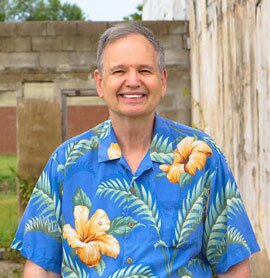
by Charly Mann
From the age of seven I have been enchanted with the idea of living happily ever after, and have made it a life quest to find that answer. I have spoken to hundreds of people – usually older and wiser than me, and read countless books and articles on the subject. In my website Uplifting Visions I share what I consider the best insights I have learned about achieving happiness in life.
There are two ways to live your life. One is as though nothing is a miracle. The other is as though everything is a miracle.
-- Albert Einstein
The great breakthrough in one's life comes when you realize that you can learn anything you need to learn to accomplish any goal you set for yourself. This means there are no limits on what you can be.
-- William Robert Mann
In questions of science, the authority of a thousand is not worth the humble reasoning of a single individual.
-- Galileo Galilei
We're not meant to fit in. We're meant to stand out.
-- Sarah Ban Breathnach
If you love life, life will love you back.
-- Arthur Rubinstein
Life isn't about finding yourself; it's about creating yourself.
-- George Bernard Shaw
Making a living is not the same as making a life.
-- Fred Castrovinci
Be more concerned with your character than your reputation, because your character is what you really are, while your reputation is merely what others think of you.
-- John Wooden
I don't need a friend who changes when I change and who nods when I nod, my shadow does that much better.
-- Plutarch
If you were all alone in the universe with no one to talk to, no one with which to share the beauty of the stars, to laugh with, to touch, what would be your purpose in life? It is other life, it is love, which gives your life meaning. This is harmony. We must discover the joy of each other, the joy of challenge, the joy of growth.
-- Mitsugi Saotome
Judge yourself by your actions and not your intentions.
-- Charly Mann
Discipline is the bridge between goals and accomplishments.
-- Jim Rohn
Call it Nature, Fate, or Fortune; all are names of God.
-- Lucius Annaeus Seneca
Remember to work hard. Look to the future with enthusiasm and hope. Accept responsibility, not only asking for your own rights, but also accepting responsibility for yourself, for other people, for nature and for future generations.
-- Madison Mann
Goals are a means to an end, not the ultimate purpose of our lives. They are simply a tool to concentrate our focus and move us in a direction. The only reason we really pursue goals is to cause ourselves to expand and grow. Achieving goals by themselves will never make us happy in the long term; it�s who you become, as you overcome the obstacles necessary to achieve your goals, that can give you the deepest and most long-lasting sense of fulfillment.
-- Anthony Robbins
Your imagination is your preview of life's coming attractions.
-- Albert Einstein
Ethical existence is the highest manifestation of spirituality.
-- Albert Schweitzer
My desire for knowledge is intermittent; but my desire to commune with the spirit of the universe, to be intoxicated with the fumes, call it, of that divine nectar, to bear my head through atmospheres and over heights unknown to my feet, is perennial and constant.
-- Henry David Thoreau
One-half of life is luck; the other half is discipline - and that's the important half, for without discipline you wouldn't know what to do with luck.
-- Carl Zuckmeyer
It is not the man who has too little, but the man who craves more, that is poor.
-- Lucius Annaeus Seneca
Security is mostly a superstition. It does not exist in nature, nor do the children of men as a whole experience it. Avoiding danger is no safer in the long run than outright exposure. Life is either a daring adventure or nothing.
-- The Dalai Lama
By three methods we may learn wisdom: First, by reflection, which is noblest; second, by imitation, which is easiest; and third by experience, which is the bitterest.
-- Confucius
There are two ways to slide easily through life: to believe everything or to doubt everything; both ways save us from thinking.
-- Sophia Lyon Fahs
Adults are obsolete children.
-- Dr. Seuss
You will never be the person you can be if pressure, tension, and discipline are taken out of your life.
-- James Bilkey
Love never dies a natural death. It dies because we don't know how to replenish its source. It dies of blindness and errors and betrayals. It dies of illness and wounds; it dies of weariness, of withering, of tarnishing.
-- Anais Nin
True happiness is to enjoy the present, without anxious dependence upon the future.
-- Lucius Annaeus Seneca
Love doesn't make the world go 'round; love is what makes the ride worthwhile.
-- Franklin P. Jones
If you're never scared or embarrassed or hurt, it means you never take chances.
-- Julia Sorel
Great minds have purposes, others have wishes.
-- Washington Irving
Time is the coin of your life. It is the only coin you have, and only you can determine how it will be spent. Be careful lest you let other people spend it for you.
-- Carl Sandberg
Choose a job you love, and you will never have to work a day in your life.
-- Confucius
The secret of getting ahead is getting started. The secret of getting started is breaking your complex overwhelming tasks into small manageable tasks, and then starting on the first one.
-- Mark Twain
We can't measure out goodness by what we don't do, by what we deny ourselves, or by what we resist, and who we exclude; but we should measure our goodness by what we embrace, what we create, and who we include.
-- from the movie Chocolat
Evil (ignorance) is like a shadow. It has no real substance of its own. It is simply a lack of light. You cannot cause a shadow to disappear by trying to fight it, stamp on it, by railing against it, or any other form of emotional or physical resistance. In order to cause a shadow to disappear, you must shine light on it.
-- Shakti Gawain
The difference between adults and children is that adults don't ask questions.
-- Kathryn Mann
No life ever grows great until it is focused, dedicated, disciplined.
-- Harry Emerson Fosdick
You must live for another if you wish to live for yourself.
-- Lucius Annaeus Seneca
Why is there something rather than nothing? We do not know. We will never know. Why? To what purpose? We do not know whether there is a purpose. But if it is true that nothing is born of nothing, the very existence of something - the world, the universe - would seem to imply that there has always been something: that being is eternal, uncreated, perhaps creator, and this is what some people call God.
-- Andre Comte-Sponville
What lies behind us and what lies ahead of us are tiny matters compared to what lives within us.
-- Henry David Thoreau
The shortest way to do many things is to do one thing at a time.
-- Richard Cech
Do not spoil what you have by desiring what you have not; remember that what you now have was once among the things you only hoped for.
-- Epicurus
A life, if well lived, is long enough.
-- Lucius Annaeus Seneca
The world is a dangerous place, not because of those who do evil, but because of those who look on and do nothing.
-- Albert Einstein
Time is the coin of your life. It is the only coin you have, and only you can determine how it will be spent.
-- Carl Sandberg
The first step in the acquisition of wisdom is silence, the second listening, the third memory, the fourth practice, the fifth teaching others.
-- Solomon Ibn Gabriol
The best and most beautiful things in the world cannot be seen or even touched. They must be felt within the heart.
-- Helen Keller
If you have integrity, nothing else matters. If you don't have integrity, nothing else matters.
-- Alan K. Simpson
Happy are those who dream dreams and are ready to pay the price to make them come true.
-- Leon J. Suenesl
It's not enough to have lived. We should be determined to live for something. May I suggest that it be creating joy for others, sharing what we have for the betterment of humankind, bringing hope to the lost and love to the lonely.
-- Leo Buscaglia
When it comes to eating right and exercising, there is no "I'll start tomorrow." Tomorrow is disease.
-- V.L. Allineare
Science may have found a cure for most evils; but it has found no remedy for the worst of them all -- the apathy of human beings.
-- Edmund Burke
Experience taught me a few things. One is to listen to your gut, no matter how good something sounds on paper. The second is that you're generally better off sticking with what you know. And the third is that sometimes your best investments are the ones you don't make.
-- Donald Trump
The greatest weakness of most humans is their hesitancy to tell others how much they love them while they're still alive.
-- Olando Battista
Happiness is as a butterfly which, when pursued, is always beyond our grasp, but which if you will sit down quietly, may alight upon you.
-- Nathaniel Hawthorne
Overcome your fears and you can reach your potential.
-- Charly Mann
Science is organized knowledge. Wisdom is organized life.
-- Immanual Kant
Six essential qualities that are the key to success: Sincerity, personal integrity, humility, courtesy, wisdom, charity.
-- William Menninger
Only Ideas have long and lasting consequences, and ideas come mainly from books not television, movies, or video games.
-- Kathryn Mann
Live as if you were to die tomorrow. Learn as if you were to live forever.
-- Mahatma Gandhi
True love is eternal, infinite, and always like itself. It is equal and pure, without violent demonstrations: it is seen with white hairs and is always young in the heart.
-- Honore de Balzac
Life is a marathon, not a sprint.
-- Charly Mann
You have succeeded in life when all you really want is only what you really need.
-- Vernon Howard
It's not how much money you make that's important - it's how much money you keep and how long you keep it.
-- Robert Kiyosaki
Peace cannot be kept by force. It can only be achieved by understanding.
-- Albert Einstein
Where all think alike, no one thinks very much.
-- Walter Lippman
The only way to change your life is to change your mind.
-- Charly Mann
No pessimist ever discovered the secret of the stars or sailed to an uncharted land, or opened a new doorway to the human spirit.
-- Helen Keller
To say that a man is your Friend, means commonly no more than this, that he is not your enemy. Most contemplate only what would be the accidental and trifling advantages of Friendship, as that the Friend can assist in time of need by his substance, or his influence, or his counsel. Even the utmost goodwill and harmony and practical kindness are not sufficient for Friendship, for Friends do not live in harmony merely, as some say, but in melody.
-- Henry David Thoreau
If you are going through hell, keep going.
-- Winston Churchill
I have six great friends that taught me all I knew; their names are What and Why and When and How and Where and Who.
-- Rudyard Kipling
Very few people really care about freedom, about liberty, about the truth, very few. Very few people have guts, the kind of guts on which a real democracy has to depend. Without people with that sort of guts a free society dies or cannot be born.
-- Doris Lessing "The Golden Notebook"
If you cannot accept fear of failure, you will never be successful.
-- Charly Mann
The good life is inspired by love and guided by knowledge.
-- Buddha
Reduce the complexity of life by eliminating the needless wants of life, and the labors of life reduce themselves.
-- Edwin Way Teale
Most people are about as happy as they make up their minds to be.
-- Abraham Lincoln
A certain degree of physical harmony and comfort is necessary, but above a certain level it becomes a hindrance instead of a help.
-- Mohandas Gandhi
Nothing is as weak as a relationship that has not been tested under fire.
-- Mark Twain
Too many people spend money they haven't earned, to buy things they don't want, to impress people they don't like.
-- Will Rogers
Wise men speak because they have something to say; Fools because they have to say something.
-- Plato
There are two things to aim at in life: first, to get what you want, and after that to enjoy it. Only the wisest of mankind achieve the second.
-- Logan Pearsall Smith
Money can contribute significantly to happiness if spent wisely.
-- Charly Mann
Money often costs too much.
-- Ralph Waldo Emerson
Passion is the genesis of genius.
-- Anthony Robbins
Even a fool, when he holdeth his peace, is counted wise: and he that shutteth his lips is esteemed a man of understanding.
-- Proverbs 17:28
Love your enemies; do good to those who hate you; bless those who curse you; pray for those who treat you spitefully. When a man hits you on the cheek, offer him the other cheek too; when a man takes your coat, let him have your shirt as well. Give to everyone who asks you; when a man takes what is yours, do not demand it back. Treat others as you would like them to treat you. If you love only those who love you, what credit is that to you? Even sinners love those who love them. Again, if you do good only to those who do good to you, what credit is that to you? Even sinners do as much. And if you lend only where you expect to be repaid, what credit is that to you? Even sinners lend to each other to be repaid in full. But you must love your enemies and do good; and lend without expecting any return; and you will have a rich reward: you will be sons of the Most High, because he himself is kind to the ungrateful and wicked. Be compassionate as your Father is compassionate.
-- Jesus -Luke 6:27-36
We learn wisdom from failure much more than from success. We often discover what will do, by finding out what will not do; and probably he who never made a mistake never made a discovery.
-- Samuel Smiles
Our prayers should be for blessings in general, for God knows best what is good for us.
-- Socrates
If a problem cannot be solved, then you need to find the best way to manage it.
-- Charly Mann
The greatest wealth is health.
-- Virgil
Modesty forbids what the law does not.
-- Lucius Annaeus Seneca
Wisdom is the supreme part of happiness.
-- Sophocles
You may think that you are the product of events that are largely beyond your control, but you do control the moment. The present is the time you take control of what your future will be.
-- Charly Mann
Believe those who are seeking the truth; doubt those who find it.
-- Andre Gide
An idealist believes the short run doesn't count. A cynic believes the long run doesn't matter. A realist believes that what is done or left undone in the short run determines the long run.
-- Sidney J. Harris
Patience and perseverance have a magical effect before which difficulties disappear and obstacles vanish.
-- John Quincy Adams
Self-pity is our worst enemy.
-- Helen Keller
It is preoccupation with possessions, more than anything else, that prevents us from living freely.
-- Henry David Thoreau
Any so-called material thing that you want is merely a symbol: you want it not for itself, but because it will content your spirit for the moment.
-- Mark Twain
An object in possession seldom retains the same charm that it had in pursuit.
-- Pliny the Younger
Three great forces rule the world: stupidity, fear and greed.
-- Albert Einstein
An intellectual is a person who is always seeking knowledge and has the ability to change his mind when he learns new information.
-- Charly Mann
Materialism is the only form of distraction from true bliss.
-- Doug Horton
To be able to fill leisure intelligently is the last product of civilization, and at present very few people have reached this level.
-- Bertrand Russell

